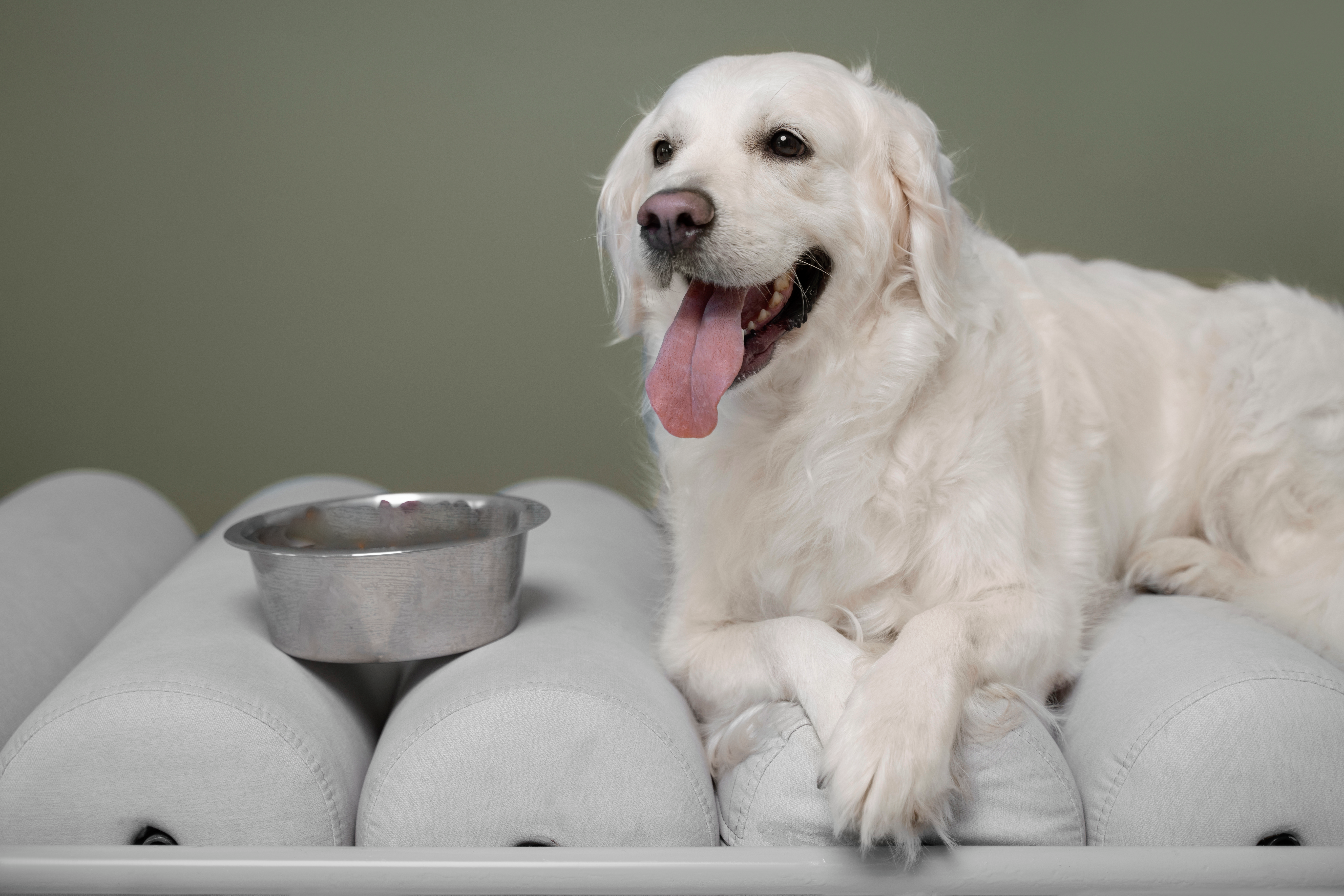Tips For Choosing The Right Food For Dogs
The key to a long, healthy life for your dog starts with choosing the right food. With so many options on the market, it can be overwhelming to know what’s truly best for your furry friend. But just like humans, dogs need food that provides all the essential nutrients to keep them strong, energetic, and happy.
Choosing the right food also plays a huge role in their coat condition, digestion, and overall well-being. That’s why it’s important to invest in high-quality, nutritionally balanced food that your dog will enjoy, while also providing everything they need to thrive.
In this guide, we’ll help you understand what to look for in dog food and the key factors to consider when choosing the right food for your furry friend.

1. Choosing Dog Food Based on Breed Size
Size Selecting the right food for your dog’s breed size is essential for their overall health. Dogs need balanced nutrients to support growth, strong bones, healthy skin, a shiny coat, and a strong immune system. Breed size significantly influences their dietary requirements:
- Small-Breed Dogs
Small dogs have fast metabolisms and need more calories per pound compared to larger breeds. Puppies especially need nutrient-rich meals to support their growth and high energy levels. As adults, small breeds thrive on diets rich in vitamins, minerals, fruits, vegetables, and whole grains. Care should be taken to avoid overfeeding, as excess weight can lead to conditions like diabetes and arthritis.
- Medium-Breed Dogs
Medium breeds, such as Beagles, fall between small and large breeds in terms of size and metabolism. They require a steady intake of proteins, fatty acids, vitamins, and minerals. Because their stomachs are smaller than large breeds, their meals should be nutrient-dense to provide the energy needed for their activity levels.
- Large-Breed Dogs
Large breeds, like Golden Retrievers, have extensive nutritional needs due to their size and activity levels. They require high-quality food rich in protein, fiber, carbohydrates, and essential vitamins. However, large breeds are more prone to health issues like bloating, heart problems, and diabetes, often caused by overfeeding. Balanced portions and moderation are key to keeping them healthy and active.
2. Food Allergies and Sensitivities
When picking the right food for your dog, it’s important to observe how the food affects them. If your dog has good energy levels, a healthy coat, firm brown stools, and overall good health, their food is likely working well.
However, if your dog shows signs like diarrhea, itchy skin, or a dull coat, it could mean they have a food sensitivity. In this case, consult your vet to identify the problem and adjust your dog’s diet accordingly.
For more serious issues like food allergies, symptoms may include hives, facial swelling, itchiness, or even severe reactions like difficulty breathing. If this happens, take your dog to the vet or an emergency care center immediately. Your vet can help identify the allergen and recommend a safe, suitable diet for your dog.
3. Check the Expiration Date
When buying dog food, it’s important to consider both the product’s quality and its packaging. Just like human food, dog food has a limited shelf life, and its packaging can affect its freshness and safety.
Look for dog food with clear labels, including the “best before” or “use by” date. Foods with shorter shelf lives should be consumed quickly to ensure they retain their nutrients and are easier for your dog to digest. Proper storage also helps maintain food quality and prevents gastrointestinal issues.
High-quality brands often use better packaging materials, like puncture-resistant, BPA-free containers, which help preserve the food. Pay attention to the packaging for instructions on how to store the food to keep it fresh longer.
In summary, always check the expiration date and packaging of dog food to ensure you’re feeding your dog safe, nutritious meals.
4. Your Dog’s Personal Preferences
Choosing the right type of dog food depends on your dog’s preferences and needs, and you can opt for either wet (canned) or dry food based on their tastes and your vet’s recommendation. Here’s what you need to know:
- Wet Food (Canned)
Wet food is great for hydration, especially if your dog doesn’t drink enough water. It also tends to have a stronger smell and taste, which can stimulate your dog’s appetite. Wet food is easier for dogs with dental issues to eat. However, it can cause dental problems like bad breath and tooth decay, and it loses nutrients if left out too long. Some canned food also contains BPA, a chemical linked to health issues, so it’s important to be cautious with long-term use.
- Dry Food (Kibble)
Dry kibble is convenient, can be left out for a few hours without spoiling, and helps with dental care by cleaning your dog’s teeth as they chew. It also tends to be more nutrient-dense than wet food. However, the choice between wet and dry food depends on your dog’s dental health, medical conditions, and preferences.
Ultimately, the best food for your dog is the one they enjoy and that meets their nutritional needs. Whether you choose wet or dry food, consider factors like dental health and hydration to make the best decision for your pet.
Reference for this content:
- https://www.akc.org/expert-advice/nutrition/every-dog-is-different-factors-that-could-affect-your-choice-in-dog-food/
- https://www.gleebirmingham.com/news-and-views/how-to-choose-dog-food-according-to-science-8-factors-to-consider-by-jen-reviews

Choosing the right food for your dog is essential for their health and well-being, and many factors—like breed size, food sensitivities, expiration dates, and you and your dog’s preference should guide your decision. With so many options available, it’s important to find a dog food that provides the right amount and right proportion of every single nutrient that your dog needs: every day, every meal.
Canis Prime is designed to meet these specific needs. It offers a precise blend of essential nutrients for dogs of all sizes, ensuring they get the proper nutrients to thrive. Whether your dog is small, medium, or large, Canis Prime provides everything they need to stay healthy, energetic, and happy.
Features like Yucca Extract reduce waste odor by up to 25%, while Probiotics promote healthy digestion. The inclusion of Omega 3 and 6 fatty acids supports healthy skin and immune function, and Natural Antioxidants protect against harmful free radicals, contributing to your dog’s long-term health.
Trust Canis Prime to provide the high-quality, nutrient-dense food your dog deserves. Feed them with PRIME LOVE through Canis Prime!
